ACSIS012
Share observations and ideas
- Plus Plan
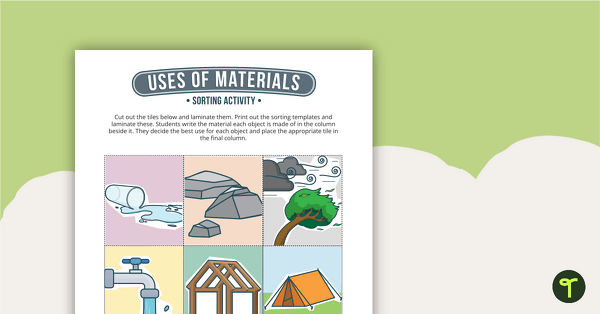
Uses of Materials Sorting Activity
A fun sorting activity for students to explore the materials objects are made of.
- Plus Plan
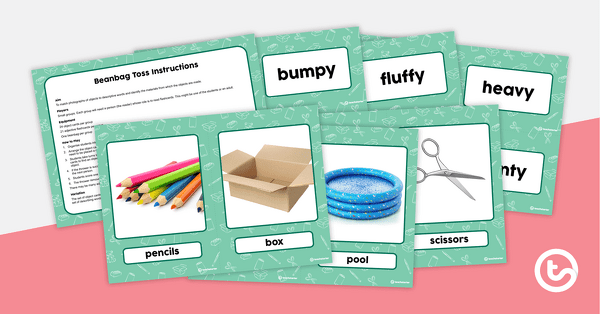
Material World Beanbag Toss Game
A fun game to play when learning about the properties of materials.
- Plus Plan
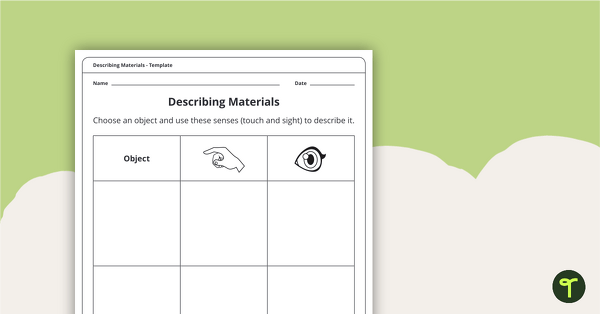
Describing Materials Template
A template to use when describing objects using the senses of touch and sight.
- Plus Plan
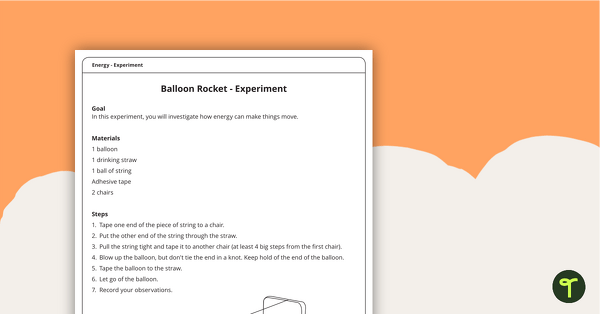
Balloon Rocket - Experiment
A hands-on experiment to use when investigating how energy can make things move.
- Plus Plan
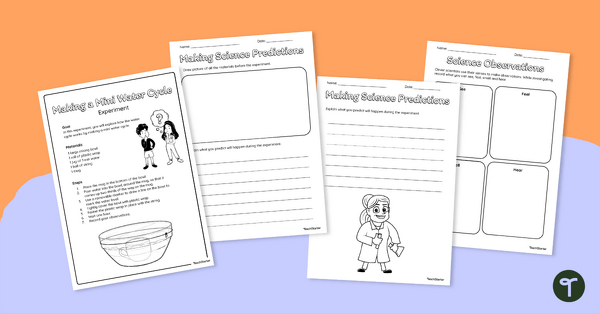
Making a Mini Water Cycle - Experiment
A hands-on experiment to use when investigating the water cycle.
- Plus Plan
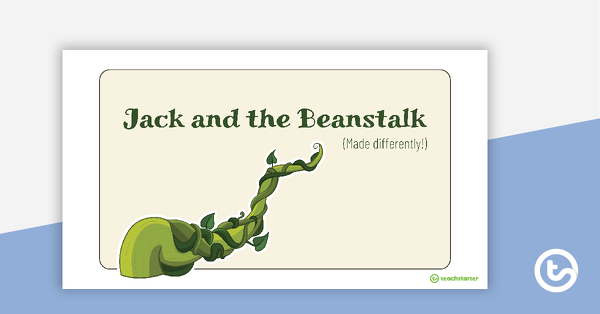
Jack and the Beanstalk (Made Differently!) PowerPoint
A 16 slide teaching presentation to use when exploring the properties of materials.
- Plus Plan
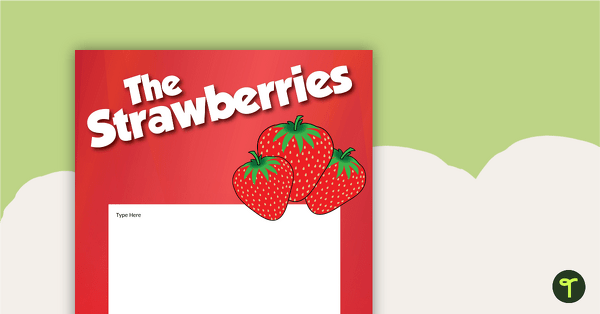
Grouping Posters - Fruits
Group your students according to fruits using these Grouping Posters.
- Plus Plan
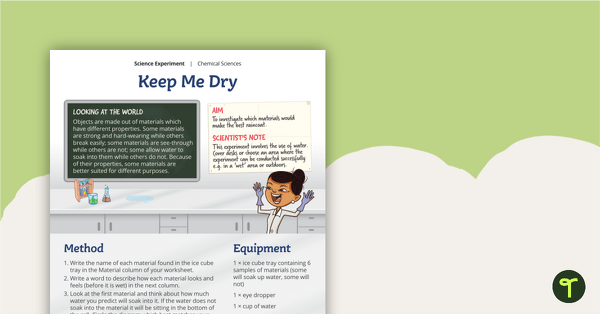
Science Experiment - Keep Me Dry
A science experiment which explores the absorptive properties of materials.
- Plus Plan
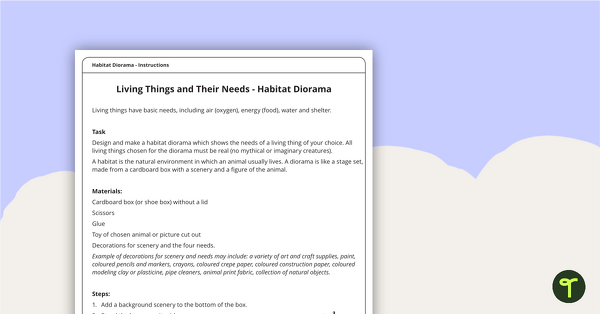
Living Things and Their Needs - Habitat Diorama
An open-ended assessment task for students to demonstrate their understanding of living things and their needs.
- Plus Plan

What If? Materials Template
A set of 6 templates to use when investigating the properties of materials.
- Plus Plan
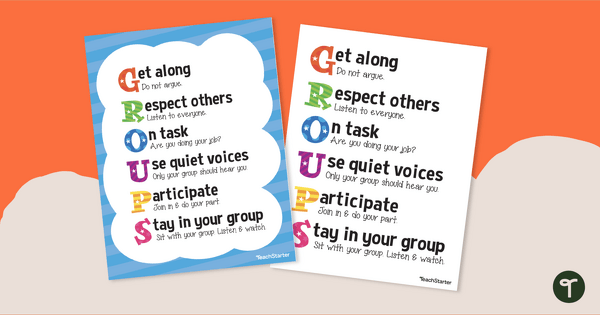
G.R.O.U.P.S - Group Work Expectations Poster
Encourage cooperative behaviour during group work activities with a printable group work mnemonic poster.
- Plus Plan
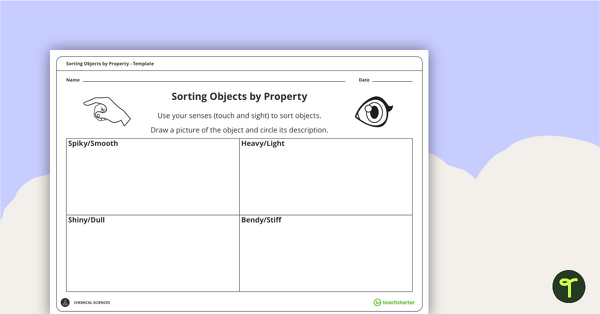
Sorting Objects by Property Template
A template to use when sorting objects using the sense of touch and sight.
- Plus Plan
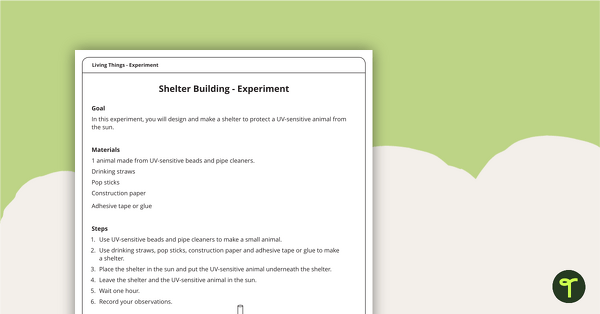
Shelter Building - Experiment
A hands-on experiment to use when investigating how shelters protect living things.
- Plus Plan
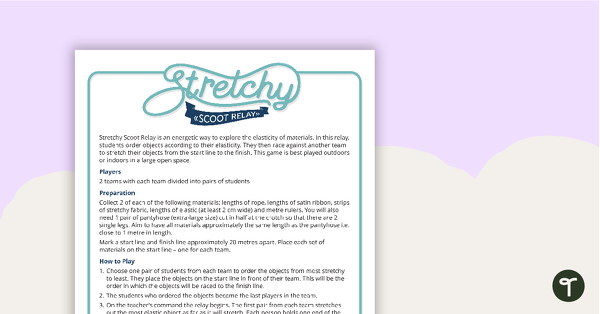
Stretchy Scoot Relay
A whole class active game to play when learning about the properties of materials.
- Free Plan
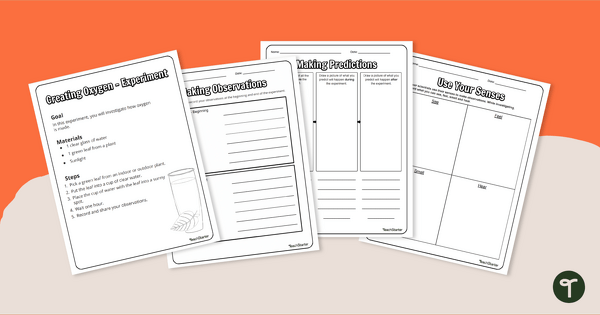
Creating Oxygen - Experiment
Investigate how oxygen is made with a hands on plant experiment.
- Plus Plan
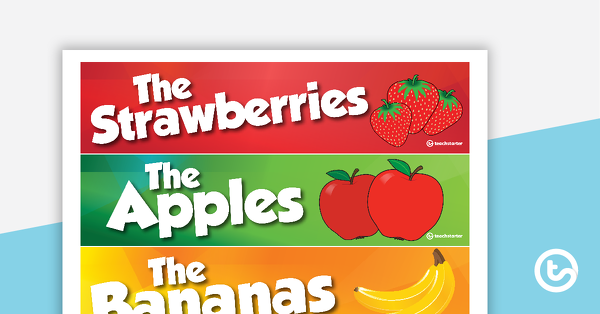
Grouping Tray Labels - Fruits
A set of seven fruit themed Grouping Tray Labels.
- Free Plan
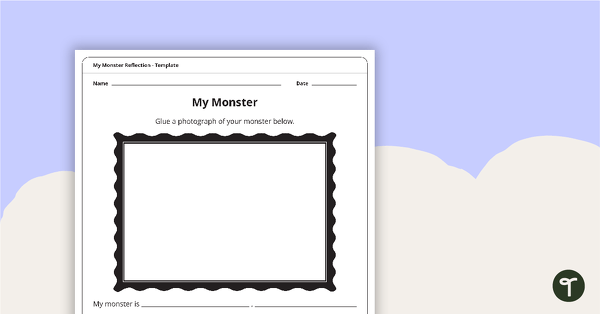
My Monster Reflection Template
A reflection template for students to use after creating a 3D monster.
- Plus Plan

Grouping Posters - Colours
Group your students according to colours using these Grouping Posters.
- Plus Plan
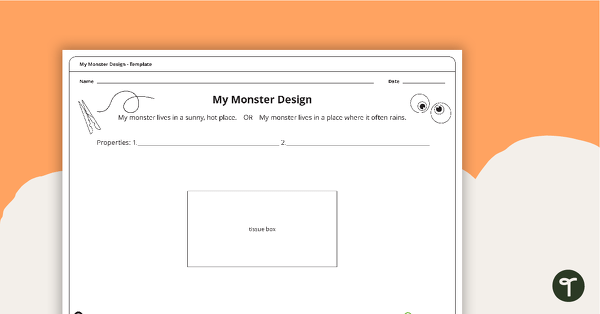
My Monster Design Template
A template to use for a design activity related to the properties of materials.
- Plus Plan
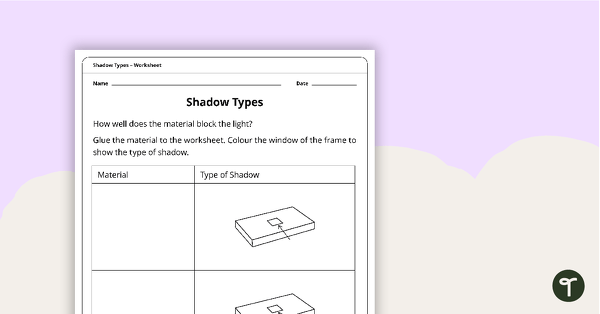
Shadow Types Worksheet
A worksheet to use when learning about the properties of materials.
- Plus Plan
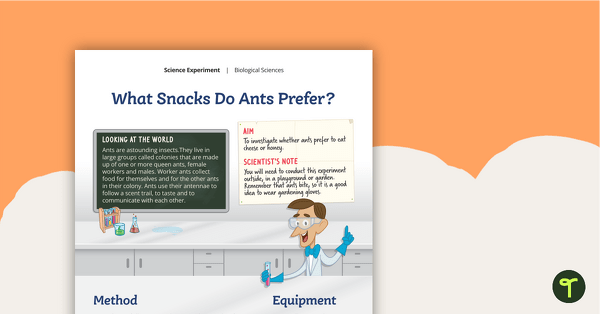
Science Experiment - What Snacks Do Ants Prefer?
A science experiment which explores the food preferences of ants.
- Plus Plan
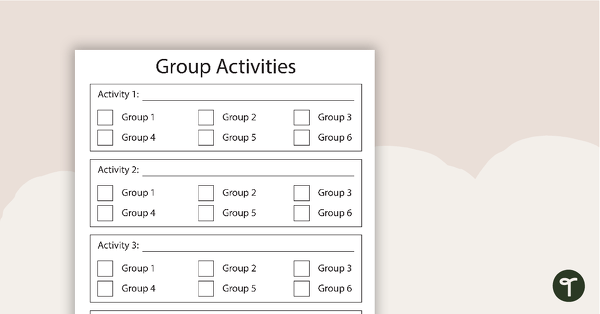
Group Activities Checklist
A checklist to assist in planning group work and ensuring that all groups rotate through each activity.
- Plus Plan
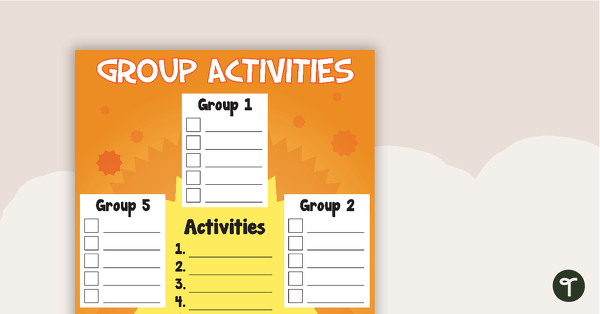
Group Activities Poster
Keeping track of group work and all of the different activities can be difficult.
- Plus Plan

Grouping Posters - Endangered and Extinct Animals
Group your students according to endangered animals using these eleven Grouping Posters.
- Plus Plan

Groups Organiser Chart - BW
Use this groups organiser to split up your class into groups for rotational activities.
- Plus Plan
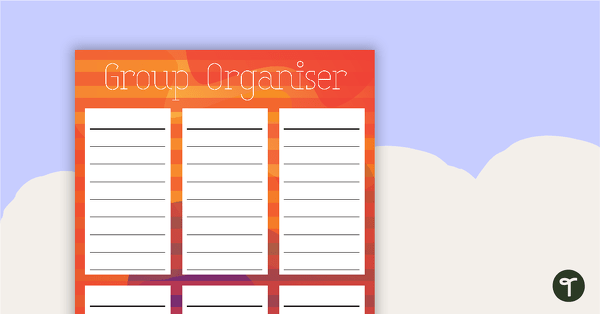
Groups Organiser Chart - Watercolour
Use this groups organiser to split up your class into groups for rotational activities.
- Plus Plan
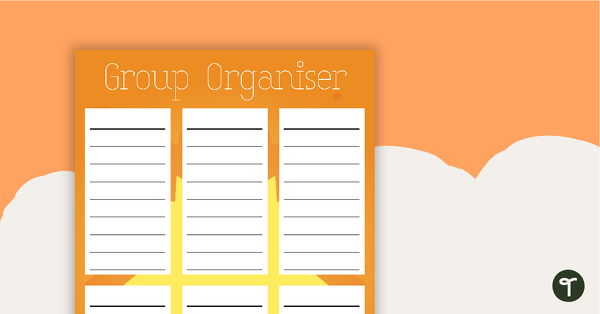
Groups Organiser Chart - Orange Starburst
Use this groups organiser to split up your class into groups for rotational activities.
- Plus Plan
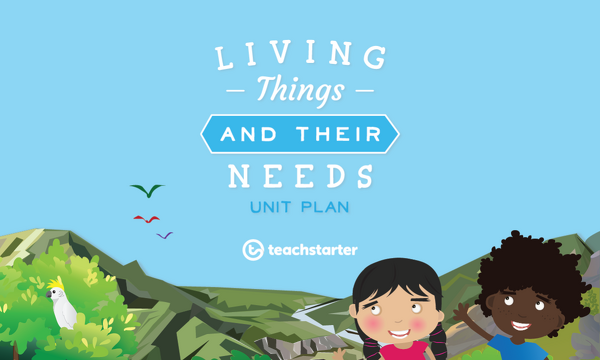
Living Things and Their Needs Unit Plan
This Science unit covers a range of concepts relating to the basic needs of living things.
- Plus Plan
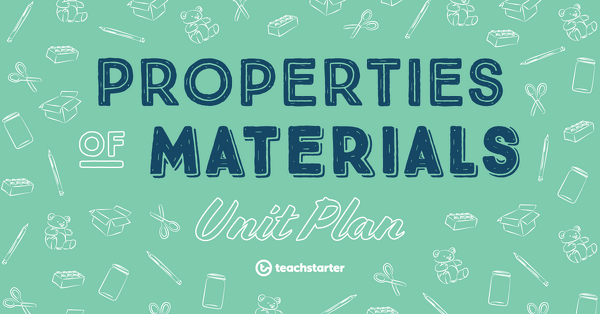
Properties of Materials Unit Plan
This Chemical Sciences unit investigates the observable properties of materials. Descriptive vocabulary is explored as well as the suitability of materials for different purposes.
- Plus Plan
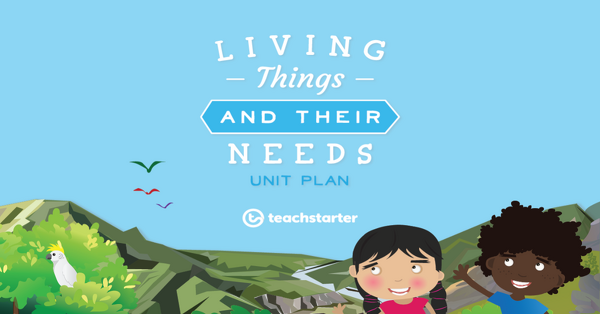
Habitat Diorama - Assessment Task
An inquiry-based assessment task in which students will demonstrate an understanding of the four basic needs for living things.
- Plus Plan
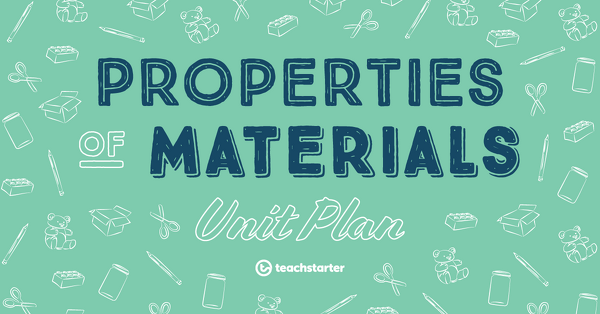
Diving Into Description
A 60 minute lesson in which students explore the properties of materials and develop vocabulary to describe them.
- Plus Plan
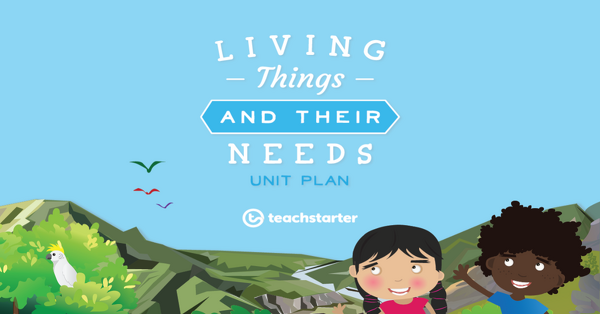
Making a Mini Water Cycle Experiment
A 60 minute lesson in which students will investigate how the water cycle works.